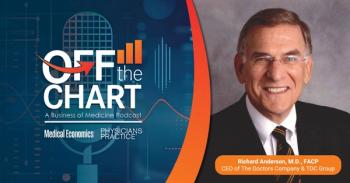
Stark In-office Ancillary Exception Is Worth Preserving
Despite a recent expose by The Wall Street Journal, the in-office ancillary exception to the Stark Law will remain the most commonly used tool by practices.
Wrapping your head around Stark Law is a lot like imagining trying to nail an omelet to a wall. Some of it might actually stick for a while, but mainly for your efforts, you just get a heap of scrambled eggs. One thing about Stark Law which I have always found comforting, is the in-office ancillary exception (IOAS) to the referral prohibition related to both ownership, investment and compensation arrangements, located at
Like all the others, the regulation is pretty much impossible to read. But for the most part, as long as the services covered by Stark Law are medically necessary, and performed in your own group practice or office, it is fairly difficult to get into trouble. At least something works well in healthcare.
Until the morning of Oct. 22, one of the first cool mornings in Dallas, when over a bowl nice bowl of oatmeal, The Wall Street Journal informed me that Medicare had been "unmasked" again, as
This ought to be good. What latest BBT ("bad, bad thing") has some group of nefarious individuals dreamt up to bilk the U.S. Treasury out of millions, and equally exciting, how did the Journal catch the scoundrels in the act? Apparently, the publication had discovered that for the past 20 years or so, there is such a thing as the "in-office ancillary services" exception, and regulators have not challenged it.
If the exception were only eliminated, Medicare could save $6 billion. It is easy to create an argument on the sophistication level of Spongebob Squarepants: "Cut spending, and we won't spend so much." This logic ignores the fact that eliminating the exception would also mean that patients would be referred outside the office for blood work, urinalysis, X-rays, MRIs, ultrasounds, CT scans, drugs, pathology, and just about anything other than the professional component of a visit.
To support the argument in favor of the wholesale elimination of the IOAS, the Journal article points to an oncology practice allegedly being investigated for … oh, let's let the newspaper break the horrific details: "The investigation focuses on whether the testing from 2007 to the present was medically necessary." Wait, what? The Journal has discovered that one oncology group's use of one test, which may or may not be necessary, is a basis for throwing out the entire "in-office ancillary services exception?"
In my experience, insurance carriers are less interested in stopping wrongful conduct, and more interested in stopping any conduct which costs money. If we eliminate the IOAS exception, will we save money? If a physician's office cannot offer an X-ray, the patient will likely be sent to the hospital waiting room; no one else can afford to own such expensive equipment. The patient will wait behind all of the uninsured patients, who are forced to use the emergency room as their primary-care provider. Hours later, our patient will receive a bill which not only includes the cost of his X-ray, but also the costs of the uninsured patients the Emergency Medical Treatment and Labor Act forced the hospital to see without regard to ability to pay. The patient will often then learn that the radiologist is out of network, and his coinsurance is not $25, as it would have been in the doctor's office, but $2,500, which he can't pay, even with insurance.
I hope someone points this out to the investigative journalist who "unmasked" what I would suppose is the simplest, most economical, and commonly used exception in all of Stark Law.
Newsletter
Optimize your practice with the Physicians Practice newsletter, offering management pearls, leadership tips, and business strategies tailored for practice administrators and physicians of any specialty.






